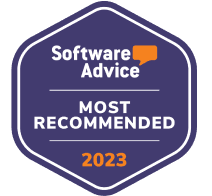What Every Small Business Should Know This Cybersecurity Awareness Month
Tuesday, October 7, 2025

Cybersecurity used to be something only big companies worried about. Firewalls, threat actors, compliance frameworks—it all sounded technical, expensive, and far removed from the day-to-day of running a small business.
But that’s no longer the case.
Today, nearly half of all cyberattacks target small businesses. And yet, only 14% feel ready to defend themselves. October is Cybersecurity Awareness Month—and if you're a small business owner, it's the perfect time to take a closer look at how you're protecting your operations, your people, and your reputation.
Why Cybersecurity Is Different in 2025
Cyber threats aren’t just growing—they’re evolving in ways that directly impact small businesses. Here’s what’s changed, and why it matters:
1. AI-Powered Phishing Is the New Norm
Phishing emails aren’t riddled with typos anymore. In 2025, attackers are using generative AI to craft emails that sound like real coworkers, vendors, or even your accountant. These messages can mimic tone, branding, and even reference recent events, making them nearly impossible to identify by gut instinct alone.
Small businesses are particularly vulnerable because they rely on quick communication and don’t always have the tools to detect these fakes. All it takes is one mistaken click to expose sensitive files, login credentials, or financial information.
2. Account Takeovers Are Getting Easier (and More Damaging)
Hackers aren’t breaking in—they’re logging in. A single compromised password can give them access to cloud tools, payroll systems, customer data, and internal communications. Once inside, they can impersonate employees, reroute payments, or steal data undetected.
What’s worse, many small businesses still reuse passwords across tools or share them via email or spreadsheets—leaving multiple entry points wide open.
3. Vendor Risk Is Everyone’s Risk Now
You may have secured your team, but what about the services you rely on—like your payment processor, marketing platform, or IT contractor?
In 2025, attackers are increasingly targeting vendors and suppliers as a way into your systems. These “supply chain attacks” mean that even if your business isn’t directly compromised, a weakness in a third-party service can still lead to data exposure or downtime.
Knowing who has access to your systems, and verifying their security practices, is now essential.
4. Remote Work Has Expanded the Attack Surface
Today’s small teams are hybrid, remote, mobile—and often using personal devices to get work done. That flexibility is great for business, but risky when it comes to cybersecurity.
Unsecured networks, unmonitored devices, and weak endpoint protections can open the door to malware, credential theft, or data leaks. And for many SMBs, there’s no central IT person keeping tabs on it all.
Lockwell sees this as an opportunity, not a limitation: protecting modern teams requires modern tools that work wherever your people are.
5 Things Every Small Business Should Be Doing Right Now
Even if you don’t have an IT department—or even a full-time tech person—there are simple, effective ways to protect your business. Start here:
1. Secure Your Passwords
Weak and reused passwords are one of the biggest threats to small businesses. A password manager can help your team create and safely store strong, unique logins for every tool you use. And don’t forget two-factor authentication (2FA)—it’s a simple way to double your protection.
2. Back Up Your Devices
Ransomware is still one of the most common (and costly) types of attacks. Regular device backups ensure that even if something goes wrong, you don’t lose everything. Think of it as digital insurance.
3. Scan for Vulnerabilities
Many breaches start with overlooked details—outdated software, open ports, or misconfigured settings. Regular vulnerability scans catch these issues early, so you can fix them before they become problems.
4. Review Your Vendor List
If you're using accounting software, cloud storage, or outsourced services, those vendors could be an entry point for attackers. Take time to review which partners have access to your data, and make sure they’re keeping up with their own security.
5. Train Your Team (Even If It’s Just Three People)
Cybersecurity isn’t just about tools—it’s about habits. Make sure your team knows how to spot phishing attempts, avoid suspicious downloads, and use strong passwords. A little awareness goes a long way.
Where Lockwell Fits In
If this all feels overwhelming, you're not alone—and you're not expected to do it by yourself.
Lockwell is built for small businesses like yours. We combine powerful security tools with the simplicity and support small teams need. From automated backups and device scans to vendor oversight, password management, and AI-guided training, it’s all in one place.
And it’s guided by Elle—your AI cybersecurity assistant—who helps you stay protected without the stress.
Make Cybersecurity a Habit This October
Cybersecurity Awareness Month is a chance to hit pause, take stock, and build better habits. It’s not about fear—it’s about control.
If you’re ready to get started, we’re here to help. Our team is offering a free cybersecurity risk assessment to help you understand your biggest risks—and how to fix them fast.
You don’t need to be a tech expert to keep your business safe. You just need the right partner.













